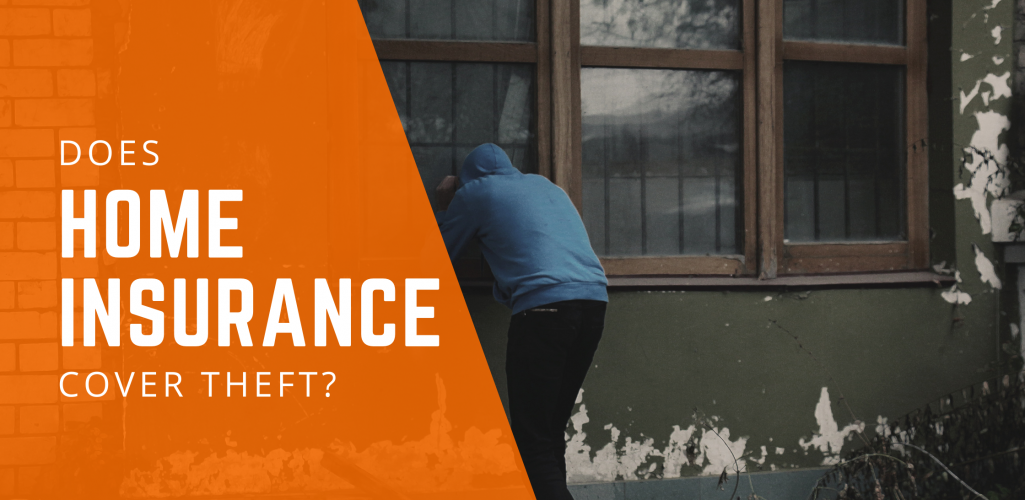They may not always wear ski masks and hide in bushes, but burglars are still very real and can be a cause for concern for homeowners. But you’re in luck! Homeowners insurance generally covers theft in your house or property. There are certain components that cover this scenario. These are dwelling coverage, personal property and other structures:
Dwelling Coverage
This is the portion of your policy that covers the actual structure (main house). The cost to replace your home can fluctuate from time to time based on the cost of raw material and labor, and of course, supply and demand.
If a burglar breaks your window or damages your door, this coverage can help you pay for the repairs.
Personal Property
This covers all of your personal belongings like clothing, furniture, electronics, and appliances. Basically anything that would fall out of your house if you turned it upside down and shook out the contents, that would be your personal property.
This coverage will take care of the property stolen from you and should pay the cost of replacing the items that were stolen. If you have a lot of gadgets or jewelry, it will be a good practice to check the value of these items and see whether your home insurance coverage is enough to pay for these when the time comes. Is your coverage amount not quite enough? Talk to an Insurance Advisor to discuss your coverages here!
Other Structure
This covers any structure on your property that is not permanently attached to your house, like fencing, driveways, sidewalks, and detached buildings like sheds and garages. If there is damage on the items mentioned due to theft, then your insurance will cover the cost.
Please take note that usually, other structures’ coverage is 10% of your dwelling limit is, but can be increased if you need more coverage. For example, if your dwelling limit is $500,000, you will have $50,000 of other structures coverage to pay for the damage. Please contact your Insurance Advisor if you would like to increase the coverage.
How Can I Calculate the Replacement Cost of All Of My Things?
There are two ways on how insurance agencies calculate the value of the items stolen. This will determine how much payout you will receive once you file the insurance claim.
Actual Cost Value (ACV)
Actual Cost Value is the depreciated value of the item at the time it was stolen. For example, a 4-year old laptop originally purchased at $900 may only have a value of $200 today. This amount may not be enough to buy a new laptop.
Replacement Cost Value
Replacement Cost Value is the value of the item when it was purchased and would be the cost of replacing the stolen item. For example, a 4-year old laptop worth $200 today could cost $900 to replace. This amount will be enough to purchase a new laptop.
You should discuss with your Insurance Advisor on which of the two your homeowners insurance includes. Of course, the latter option will be more expensive but it will definitely help you replace the item when needed.
Tips for a Burglary Insurance Claim
- Once you find out that you were a victim of theft, the first thing to do is to report to the police. You may also want to get in touch with your insurance agent as soon as possible. Don’t forget to ask for a copy of the police report to process the claim.
- It would also be a good idea to document any property damage with photos and videos to support your claim. Make a list of the things that were stolen and damaged.
- If you need to do emergency repairs, keep the receipts so you can show it to your insurance agency.
For more information on homeowners insurance, please go to this page.
How Do I Know If I Have the Right Amount of Homeowners Insurance?
When was the last time you reviewed your homeowners insurance policy? If you can’t remember and you already had major renovations completed on your home or have acquired new valuable items, it is better to contact your insurance agency to have a policy review and update your insurance coverage. Contact your local independent insurance agent to learn more about your current homeowners insurance policy or get a home insurance quote.


